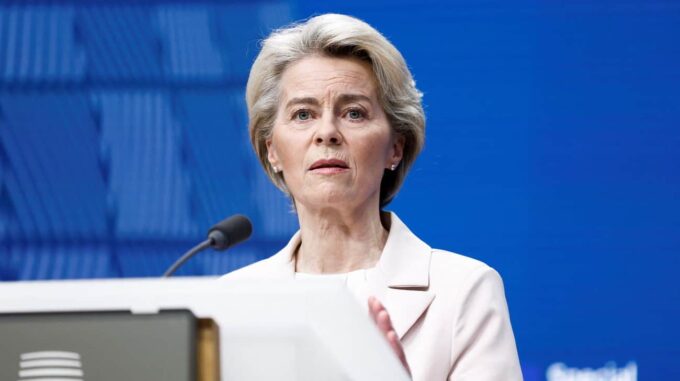The European Union has announced a new, 18th package of sanctions against the Russian Federation, continuing its targeted policy of restrictions in response to the aggression and war that Russia is waging against Ukraine

This was revealed on June 10 in Brussels during the presentation of the relevant proposals by European Commission President Ursula von der Leyen, who emphasized that the new package would be extremely stringent and primarily aimed at the designated Russian energy and banking sectors. According to the chief European official, the European Commission intends to significantly strengthen export bans as well as control measures to prevent circumvention of sanctions regimes. One of the key innovations will be the introduction of a ban on all transactions involving the Russian pipelines "Nord Stream 1" and "Nord Stream 2." This means that no operators or participants in the European market will have the right to conduct direct or indirect operations with these pipelines, marking the first time such level of restrictions is imposed on these major Russian gas flows. "There is no returning to the past," she emphasized, referring to the complete blocking of any transactions involving the "Nord Stream" pipelines. Another important aspect of the new sanctions is lowering the ceiling on the oil price from $60 to $45 per barrel. The EU's oil policy aims to reduce Russia's economic revenues, thereby decreasing its ability to finance military operations and maintain economic stability. Ursula von der Leyen explained that since the introduction of this price cap, oil prices have actively decreased and trading prices have now approached the set limit, making its reduction an important step in adapting to market changes and increasing effectiveness. In addition, as part of measures to combat sanctions circumvention, it is proposed to additionally ban the import of petroleum products produced from Russian crude oil. This will be an attempt to prevent any bypass supplies of "black" oil into the EU market, which could further contribute to financing Russia's military complex. A significant direction of the new sanctions will be the banking sector. It is planned not only to expand the restriction on the use of the SWIFT system but also to apply it to an additional 22 Russian banks, aiming to significantly limit their ability to attract financing, conduct transactions, and support trading operations. Furthermore, restrictions for financial operators in third countries that finance trade with Russia and circumvent the sanctions regime will be introduced, enabling more thorough oversight of financial support to the aggressor country. Another crucial step is implementing a ban on the export of technologies and industrial goods valued at over 2.5 billion euros. These restrictions concern key goods for the Russian economy – machinery, metals, plastics, chemicals – as well as dual-use products used for manufacturing weapons, missiles, drones, and other military systems. The goal is to prevent Russia from upgrading or strengthening its military capabilities with European technologies. Concluding the presentation, Ursula von der Leyen stressed that effective sanctions enforcement is also vital. Therefore, an additional list has been added comprising 77 ships used to circumvent the embargo and 22 companies or foreign entities that openly or covertly support Russia's military-industrial complex. This forms part of a broader strategy to ensure that support received from abroad by Russia is minimized, which is particularly significant in the context of the ongoing war against Ukraine. Finally, the President of the European Commission emphasized the need for an accelerated cessation of hostilities: "We are calling for at least a 30-day pause in the war that would reduce civilian suffering and create preconditions for negotiations, ultimately leading to long-awaited peace." Previously, on May 20, the EU Council approved the 17th package of sanctions, which included restrictions on the use of chemical weapons and measures against Russia's destabilizing activities. However, many leaders, including Lithuanian President Gitanas Nausėda, described it as insufficiently stringent and called for strengthening restrictions in the future to best assist Ukraine in repelling Russian aggression and increasing pressure on the Kremlin.

